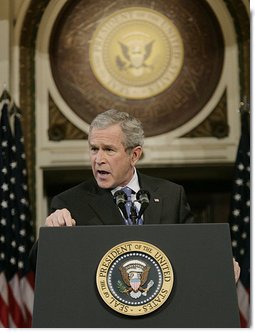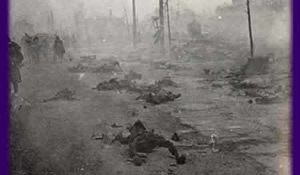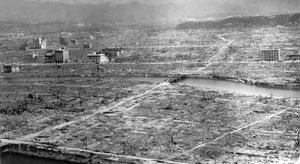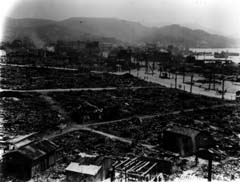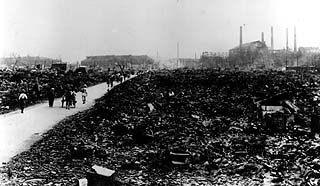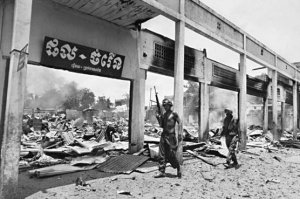Bayonet-point capitalism
(Story via to the barricades 2006-12-19.)
Here is the latest from the bowels of the military-industrial complex: the United States Army is now threatening to invoke Taft-Hartley to intervene on behalf of Goodyear management against striking steelworkers. That is to say, if the Army can’t reliably get the parts for its war machines on the free market, there’s always industrial conscription to smooth out labor relations for its suppliers.
The US Army is considering measures to force striking workers back to their jobs at a Goodyear Tire & Rubber plant in Kansas in the face of a looming shortage of tyres for Humvee trucks and other military equipment used in Iraq and Afghanistan.
A strike involving 17,000 members of the United Steelworkers union has crippled 16 Goodyear plants in the US and Canada since October 5.
The main issues in dispute are the company’s plans to close a unionised plant in Texas, and a proposal for workers to shoulder future increases in healthcare costs.
An army spokeswoman said on Friday that
there’s not a shortage right now but there possibly will be one in the future.According to Duncan Hunter, chairman of the House of Representatives armed services committee, the strike has cut output of Humvee tyres by about 35 per cent.
…
According to Mr Hunter, the army is exploring a possible injunction under the Taft-Hartley Act to force the 200 Kansas workers back to their jobs.
He proposed that they return under their current terms of employment, on the understanding that any settlement would be extended to them.
— Bernard Simon (2006-12-15), Financial Times: US Army might break Goodyear strike
As long as the bayonets stay sheathed, nearly 16,000 USW workers will remain on strike. In solidarity, you might consider making a contribution to the USW strike fund to help support striking workers while they stand up to the bosses and try to make it through a holiday without paychecks.
Nearly 16,000 Goodyear employees are facing the holidays without paychecks. These United Steelworkers (USW) members are sacrificing for all of us, fighting the fight for good jobs. Being without a paycheck any time is painful—but right before the holidays, it's especially hard. Every penny of your contribution will go to striking Goodyear workers and their families.
Please help. Please take a moment now to make a generous donation to support the striking Goodyear workers and warm up their holidays. They deserve to know we care and we honor their fight to hold employers accountable to their workers and communities.
